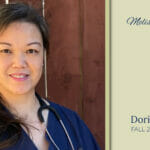September is recognized as Atrial Fibrillation Awareness Month. Atrial fibrillation, abbreviated as AFib or AF, is a form of irregular heartbeat that can increase the risk of blood clots, stroke, heart failure, and other heart-related complications.
Normally, your heart rate is 60 to 100 beats per minute. With AFib, your heart rate can be as high as 175 beats per minute. With AFib, the two upper chambers of the heart, known as the atria, beat irregularly. The atria contracts so quickly that the heart walls quiver, or fibrillate. This irregular beating causes it to fall out of sync with the two lower chambers of the heart, known as the ventricles.
This irregular beating makes it difficult for blood to move effectively through the heart. This slows down blood flow and can cause blood to pool and form clots. If a clot breaks off and travels through the bloodstream to the brain, it can cause a stroke. About 15 to 20 percent of stroke patients have AFib.
Left untreated, AFib doubles the risk of heart-related deaths. If you have AFib, your risk for a stroke is five times as high. Despite these staggering statistics, many people with atrial fibrillation do not see it as a serious threat. Less than half believe they are at an increased risk for stroke or heart-related complications.
Atrial fibrillation may be caused by other conditions of the heart; however, doctors may not always be able to find out what’s causing it. They do know that your risk for developing AFib increases with age, especially after 60, when your risk of heart disease and other heart-related conditions that can cause AFib increases. Women are also at a higher risk for AFib.
If you have any of the following heart conditions, you are at an increased risk for AFib.
- Heart valve disease
- Coronary artery disease
- Heart failure
- Rheumatic heart disease
- Cardiomyopathy (weakened heart muscle)
- Heart birth defects
- Pericarditis (inflamed membrane or sac around the heart)
- High blood pressure or high cholesterol
Some people don’t experience any symptoms during an AFib espisode. Some symptoms can mimic those of a heart attack. During an AFib episode, common symptoms include:
- Heart palpitations
- Fluttering or quivering of the heart
- Pain and pressure in the chest
- Shortness of breath
- Weakness
- Confusion
- Dizziness
If you’re not sure whether it’s AFib or a heart attack, call 911. If you are experiencing a drooping face, arm weakness, trouble speaking, nausea, or pain that spreads to your jaw, neck, arms, back or stomach, it may be a stroke or heart attack and you should immediately call 911.
The type of AFib you have will affect how long symptoms last. In paroxysmal fibrillation, fluttering lasts 7 days or less. In persistent AFib, it lasts more than 7 days. In permanent AFib, fluttering of the heart does not go away.
If you have been diagnosed with AFib, your doctor may have to treat your heart to correct the irregular rhythm or lower your heart rate.
- Beta blockers, calcium channel blockers, and digoxin are medicines that help control your heart rate.
- Sodium channel blockers and potassium channel blockers work to regulate your heart rhythm; this treatment option is known as “chemical cardioversion”.
- Blood thinners are used to prevent clots and reduce the risk of stroke.
- Cardioversion is a mild electrical shock that resets the heart’s rhythm.
- Ablation is when your doctor burns off tiny parts of the heart that are causing the irregular beats. Scars form and block abnormal electrical signals.
- Left atrial appendage (LAA) occlusion is an option for those that can’t take medications or for people with severe symptoms. Strokes occur most often in the upper left chamber (left atrium), so this surgery seals off this part of the heart to prevent blood clots and strokes.
At least 2.7 million Americans are currently living with AFib. If you have AFib, talk to your doctor about treating the underlying causes and maintain a heart-healthy lifestyle.
Disclaimer: The information provided in this article is not intended to diagnose health problems or take the place of professional medical advice or care you receive from a health care provider. Always consult your health care provider about medications, symptoms, and health problems.
Sources
http://www.webmd.com/heart-disease/atrial-fibrillation/default.htm
http://www.mayoclinic.org/diseases-conditions/atrial-fibrillation/home/ovc-20164923





